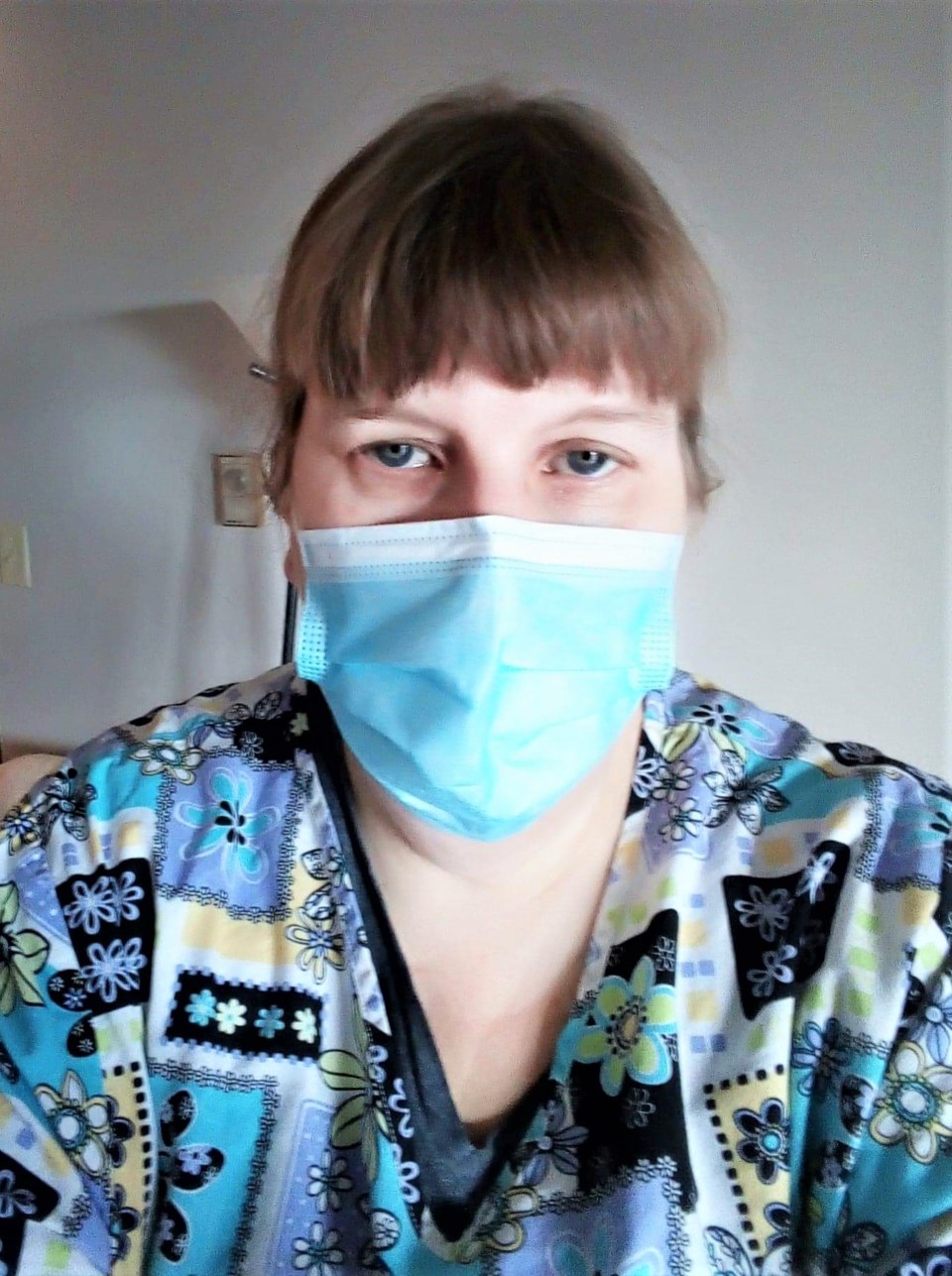Being a personal support worker (PSW) is difficult at the best of times, but the COVID-19 pandemic has made the stressful job even more challenging.
Working with vulnerable people and trying to ensure her own safety has taken a toll on Cheryl Bumstead.
“It makes you feel uncomfortable, scared, vulnerable,” said the local PSW. “Some people are having friends and family still coming in and I tell them, ‘You can’t be doing this.’”
Some of the clients “don’t remember” there’s a pandemic, she said, and in those cases, it’s incumbent on the families to ensure they aren’t putting their loved ones in danger.
Bumstead, a PSW for 15 years, usually would go to retirement homes and then do some community visits. During the pandemic, she is only doing community work — and there’s not as much of a demand at the moment. She would typically work eight to 10 hours a day. Now, sometimes she works as few as three hours a day.
“The families are putting our clients on hold because they’re afraid of the virus, and the seniors who don’t have families are scared, too,” she said.
It doesn’t help alleviate the fear and confusion when a PSW shows up wearing goggles and a face mask.
“Some of them don’t understand why we’re showing up looking like aliens,” Bumstead said.
A typical visit for Bumstead could include meal preparation, showering or bathing a client, working with catheters and colostomy bags and feeding tubes, but “a lot of it is interaction.”
“We’re often the only people they see. Some of their families don’t even come visit them,” she said, noting seniors aren’t the only clients; she has also worked with younger people who are suffering from cancer or multiple sclerosis.
It takes a special person to do that job, and they certainly don’t get into it for the pay, she said, noting the province’s announcement of a $4-per-hour “pandemic pay” increase was a nice gesture, but it’s only temporary.
“The government talks about changing the health-care system, but they need to look into paying the PSWs properly so we don’t have to work two different jobs to survive,” she said. “A lot of girls are getting tired. They’re rethinking even doing this job. We’re not getting the respect and support we need.”
It’s not easy to unwind after a stressful day of work, but Bumstead does her best. A long walk has proven to be a good way to “clear it all out.”
“I try not to let it bother me. Sometimes it gets overwhelming, so I’ll go for a walk or take a hot bath,” she said. “If I don’t clear my head, it will drive me bonkers.”
Every day after work, she returns home and takes the necessary precautions to ensure the safety of her son and her boyfriend, with whom she lives. Then, in the morning, she motivates herself to do it all over again.
“I just get up every morning and say, ‘It’s going to be a fabulous day and I hope to hell I don’t get this virus,’” she said.
